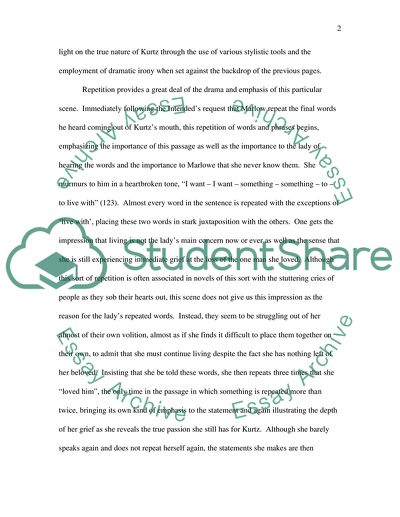Cite this document
(“Heart of Darkness Essay Example | Topics and Well Written Essays - 1750 words”, n.d.)
Retrieved de https://studentshare.org/english/1537634-heart-of-darkness
Retrieved de https://studentshare.org/english/1537634-heart-of-darkness
(Heart of Darkness Essay Example | Topics and Well Written Essays - 1750 Words)
https://studentshare.org/english/1537634-heart-of-darkness.
https://studentshare.org/english/1537634-heart-of-darkness.
“Heart of Darkness Essay Example | Topics and Well Written Essays - 1750 Words”, n.d. https://studentshare.org/english/1537634-heart-of-darkness.


